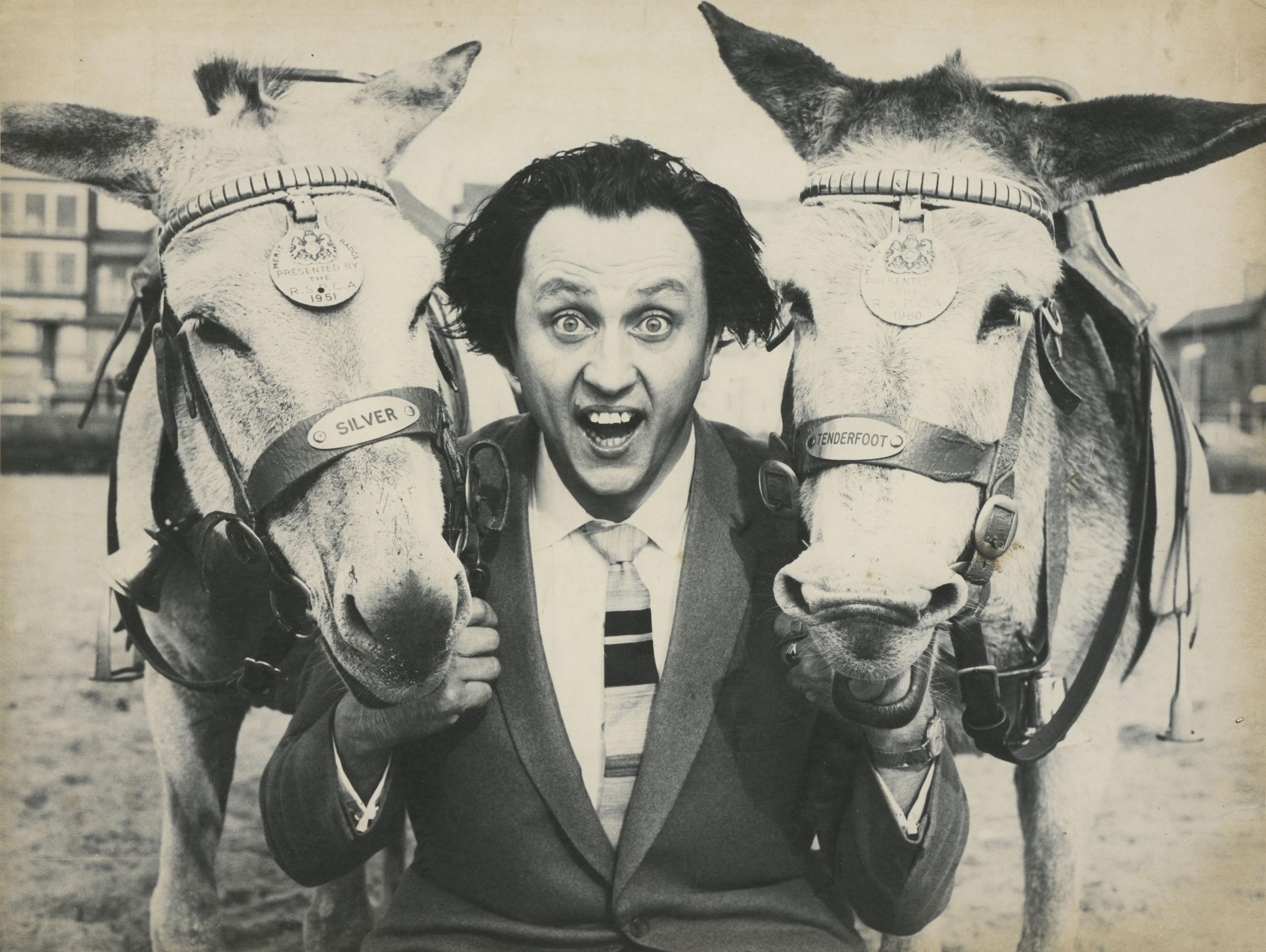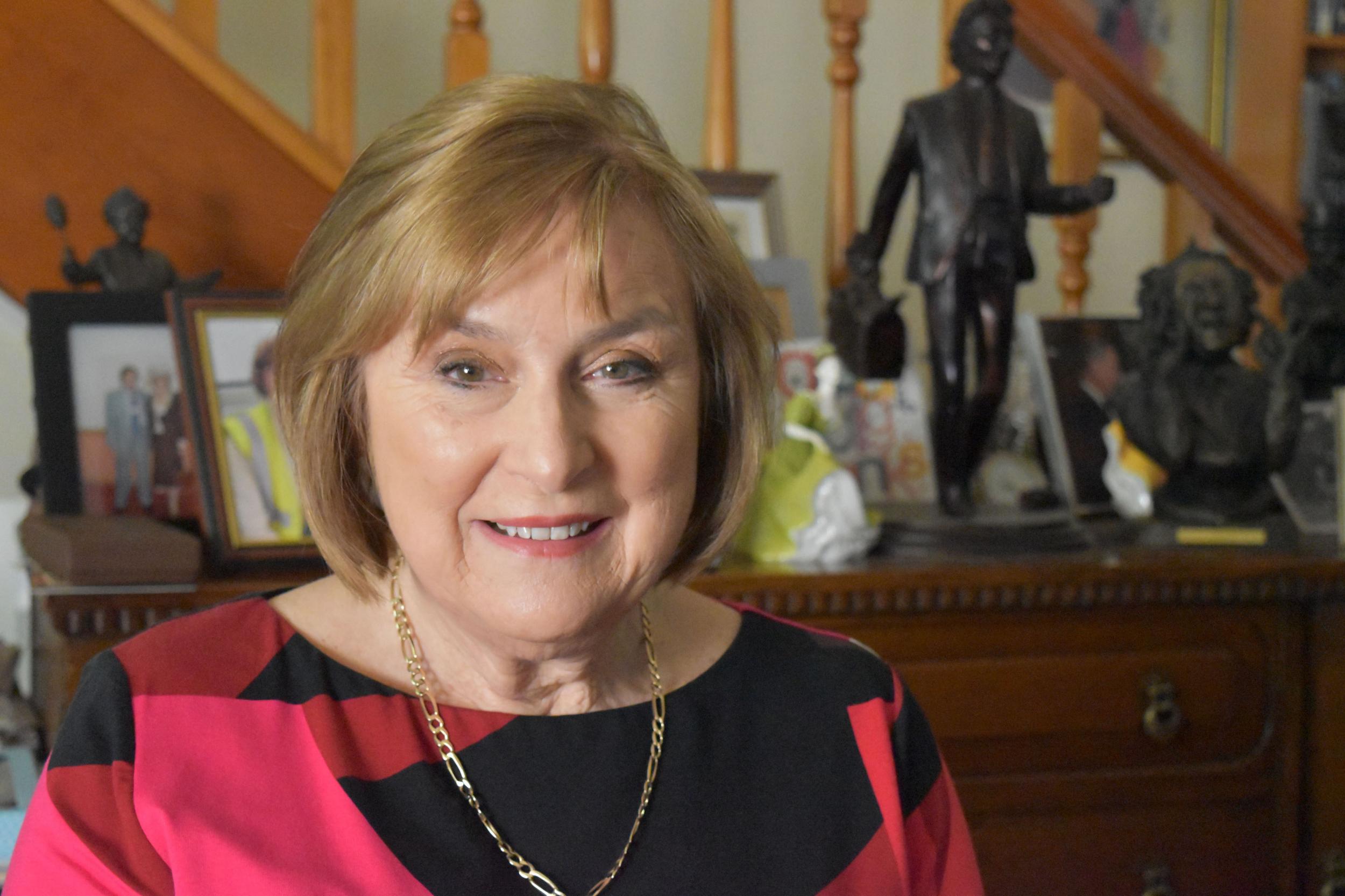Ken Dodd: How Tickled We Were review – a documentary to convert the sceptics
The Liverpool comedian loved by The Beatles is remembered in a fitting tribute that steers clear of sycophancy

It’s not often you see John Lennon – or any of the Fab Four for that matter – lost for words, but here The Beatles are in their cheeky, early Sixties prime, smiling sheepishly in the presence of someone they obviously deeply admire. That figure is buck-toothed, crazy-haired comedian Ken Dodd, who might strike anyone from outside of Liverpool as a mite strange, but Lennon believes he’s in the presence of a wordsmith every bit as sharp as himself.
As a rollcall of fellow scousers – Jimmy Tarbuck, Ricky Tomlinson, Claire Sweeney, Roger McGough et al – attest, Dodd was revered in Liverpool because he never left it. In fact, he died in the same modest house in the suburb of Knotty Ash that he was born in 90 years earlier.
I have to admit that I came to the BBC2 documentary Ken Dodd: How Tickled We Were with a mild lifelong aversion to “Doddy” and his blinking “tickling sticks”, simply because he was a favourite entertainer of a least favourite teacher of mine.
So, I’m glad that the film goes a long way to counter this irrational dislike of a man described here as “the last great music hall entertainer”. Dodd preferred the stage to the television studio – those “bits of scrap iron” (as he referred to TV cameras) came between him and his beloved audience. He had an almost pathological need for connection, which explained why his live shows could go on for hours. So long, in fact, that ex-Liverpool footballer Ian St John recalls leaving the show after two hours, watching a Champions League game, having a curry, and returning for the last hour of Dodd’s act. The only way management learnt to curb his time-keeping was to charge the penny-pinching comedian for overtime.
It was this gently alluded to miserliness that caused the one scandal in Dodd’s 70-year career – happily not of a sexual nature, but caused by his alleged unwillingness to pay income tax. Having the case heard in front of a Liverpool jury probably wasn’t the Inland Revenue’s cleverest idea.
Dodd certainly wasn’t a big spender, his most extravagant expense being on books, preferably books on comedy. The film underlines how much preparation went into this autodidact’s seemingly free-flowing performance. “His act was like a structured orgy,” says veteran theatre critic Michael Billington, while Dodd himself claimed he never did the same show twice, and reckoned that seven laughs a minute was the ideal strike rate.
The two most influential individuals in Dodd’s life seem to have been his coal-merchant father, Arthur, a born entertainer who set the eight-year-old Ken on his way when he bought him a ventriloquist’s dummy, and Dodd’s wife, Anne. “I fell in love with his eyes,” says Lady Anne, who acted as her husband’s chauffeur, tour manager and stage manager – monitoring the performances from the wings as well as appearing in them, often to sing country and western ballads. “I loved it… I was bossy,” she says, while Jimmy Tarbuck calls her “a wonderful nurse”.

Dodd himself had a good voice and several hits with his old-fashioned ballads. His 1965 number one hit “Tears” was the third biggest-selling UK single of the 1960s, only topped by The Beatles.
So, what was he like in private, asks Craig Charles’s narration. He was a churchgoer who saw his life as “blessed” after a childhood illness he hadn’t been expected to survive. He enjoyed watching telly – Flog It and the horse racing were favourites – and he loved his many dogs. Their utter devotion, come to think of it, was not hugely different from that of the audiences Dodd was still playing to in his 90th year. The last of the great music hall entertainers indeed.
Join our commenting forum
Join thought-provoking conversations, follow other Independent readers and see their replies
Comments